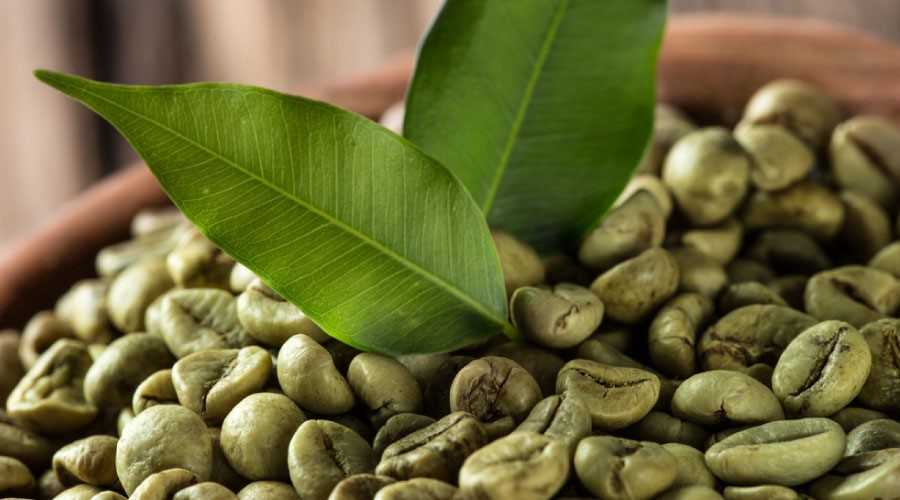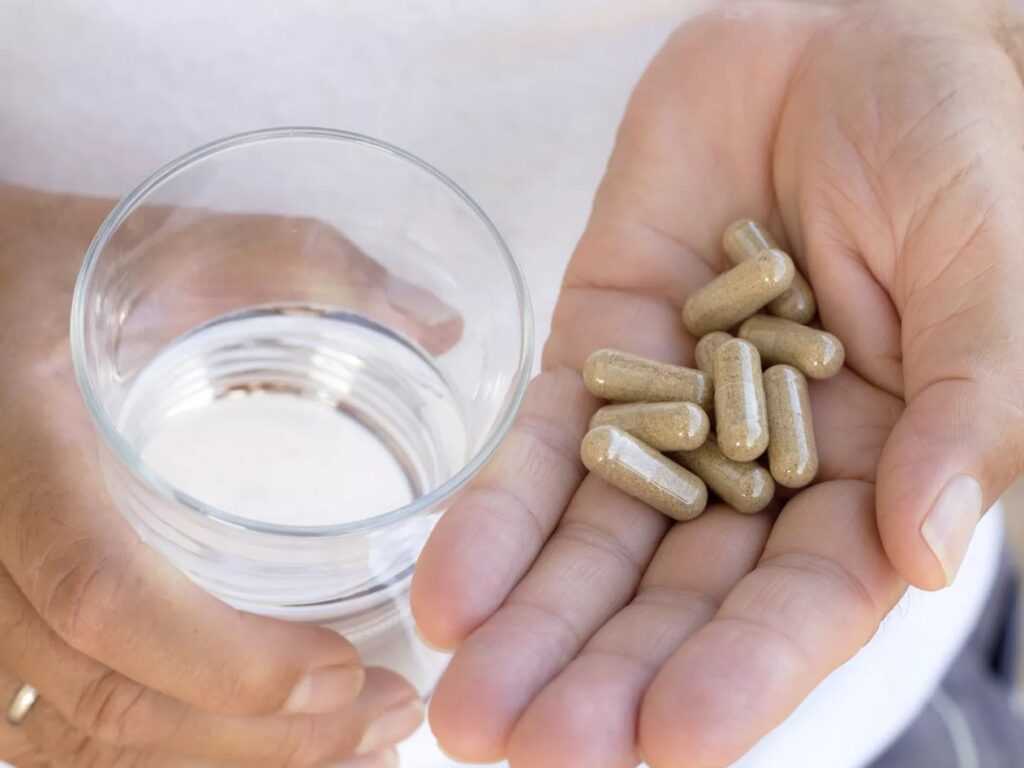Despite of multiple studies & unbiased researchers, who have exposed the useless supplements being sold in the market, there is hardly any reduction in their sales. This is because there are many more salesmen selling such products, than the ones making you aware about the truth.

I already have separate videos, eBooks and blogs, exposing these useless supplements being sold in the market in the name of ‘weight loss supplements’ or ‘fat burners’.
Remember, once a crappy product is out there in the market, it’s extremely difficult to get it off. There are millions of people who believe in these products, not because they work, but because they blindly believe their dieticians, trainers or certain celebrities who shamelessly sell these things to them, simply for profits. Even in India, many companies, despite knowing about the facts are selling many supplements like these and the market is full of them.
One word for all the people out there. Beware! There is simply no magic pill out there. You do not top your class by finding some short cuts. You need to grind and hustle for hours together, day in and day out and the results surely follow. That’s true in every field of life. Anyone who promises you overnight results is nothing more than a Con artist.
Here are my TOP 6 USELESS supplements sold in the name of ‘weight loss supplements’ or ‘fat burners:
- CLA (Conjugated Linoleic Acid)
This is among the top most useless supplements in the list, which is not just absolutely worthless when it comes to fat burn, or changes in body composition, but is harmful to the body.
Below are the studies, you can refer to, proving its wastefulness as a fat burner:
(https://go.nature.com/3i7aeM1)
In all the studies I reviewed there were some clear answers and some paradoxes. Here are some of the observations:
- When you look at the fat loss effects of CLA, either studies are not supporting it, or the effect is too small to be noticeable even after long term consumption of larger doses of CLA.
- Studies showed that the fat burning effect of CLA is seen in mice, but not in humans and larger animals.
- CLA enriched milk also failed to show any improvement in lipid profile or body composition.
- Even a year of continuous CLA supplementation, could not prevent weight and fat regain.
- On the other hand, there may be multiple harmful effects seen with CLA supplementation:
- Increases inflammation in the body
- Increases insulin resistance and decreased insulin sensitivity
- Elevated blood triglycerides.
- Reduction in HDL
2. L-CARNITINE
One of the primary reason, L-carnitine is being sold as a supplement in the market is its relation to fat burn. However, very few studies have proven it so far, especially human studies. This is especially important for the various gym freaks, who have been extensively using supplements in the likes of L-carnitine, and others, purely on the basis of recommendations from various friends, trainers, dieticians or self-proclaimed experts on YouTube.
I tried to find the studies behind the effect of L-carnitine as a fat burner, and to my surprise there were nothing more than one odd study supporting it. On the contrary, every study whether animal or human study, has seen no effect of L-carnitine on fat burn or change in body composition.

Acc. to examine.com, “L-Carnitine has many mechanisms by which it can theoretically increase the rate of fat loss, yet it doesn’t seem to actually induce or augment fat loss when supplemented. The exception to this is in a deficiency state, in which L-carnitine supplementation will restore hindered fat burning potential.”
Now, the issue with certain studies is the way people understand them, and based on very small findings, overhype things, because they are looking for any reason under the sun to sell their products.
A meta-analysis & systematic review study, evaluated around 43 different studies, demonstrated that L-carnitine supplementation significantly reduces weight, BMI, fat mass and waist circumference while it did not always affect body fat percent.
Moreover, some of these outcomes are dependent on the participants BMI, effect was found in people with a BMI below 25, and was dependent on dose of L-carnitine. But the major issue was not this, it was the amount of difference in weight loss found. The amount of weight loss was fat mass lost was app. 1kg.
Now, with still an inconclusive result, if the review found that, there is no reduction in body fat percentage, the weight loss was just 1kg, and seen only in people with BMI below 25, then I don’t think there is any positive outcome of the study in favour of L-Carnitine.
Similarly, another meta-analysis & systematic review study, evaluated 9 studies and found that, carnitine has had a decreasing impact onto weight and BMI. However, the magnitude of weight loss would decrease over time. Also, the analysis indicated that dosage of carnitine had positive, but not significant, impact on weight change.
Acc. to the US National Institute of Health fact sheet on L-carnitine, healthy adults or children do not need to consume carnitine from food or supplements, as the liver and kidneys produce sufficient amount from the amino acid lysine and methionine to meet the daily needs. Also, it was seen by NIH, that kidney efficiently conserves carnitine, so even carnitine poor diets have little effect on body’s total carnitine content.
So, if you take in excess carnitine, it would be simply excreted from the urine, via the kidneys to maintain stable blood concentration. Also, carnitine intake over app. 3g/day, may cause nausea, abdominal cramping, vomiting, diarrhoea, and fishy body odour. Though in high doses, supplemental carnitine has not shown to be toxic.
When we talk about carnitine deficiency, it is actually a rare genetic disorder, which is seen at an early age of around five. Carnitine deficiency may also occur in rare cases like chronic renal failure, or certain medicines which may reduce carnitine absorption.
3. GARCINIA CAMBOGIA
This comes out to be among those supplements which are not just useless, but also have been shown to cause various toxicity issues like liver injury, in the body.

Some studies may support its use an appetite suppressant. Acc. to examine.com, “Some old sources suggest that it could potentially help curb the appetite, but for the longest time it was uncertain whether this was because it had actual appetite suppressing properties or whether the taste experience just made people be more satisfied with less food.”
Acc. to a study, “preclinical evidence suggests that oral consumption of HCA reliably reduces food intake and body weight. Studies in humans, for the most part, fail to replicate this. Some isolated studies do note weight loss, but it appears to be quite variable and unreliable. Although there is some limited potential for HCA as a weight-loss inducer, the magnitude of effect is quite low, and the benefit is unreliable; making it hard to recommend this compound as a fat burner or anti-obesity agent. Beside poor evidence on garcinia cambogia efficacy as dietary compound, safety issues regarding this extract also represents a major clinical concern.”
Researchers reviewed various studies and found “a potential causal association between consumption of garcinia cambogia products and development of acute liver injury. Although in some cases liver damage progressed slower than in others, this association is also supported by clinical outcomes of improvement after the cessation of dietary supplement intake. Symptoms of liver damage were similar in all patients, and were also confirmed, if available, by liver biopsies.”
Some studies which conclude that garcinia has significant effect on weight loss, has a different story to tell, when you actually analyse the study. For e.g. a meta-analysis study, which concluded that garcinia has a significant effect on body weight & BMI reduction, actually showed that the average weight loss after long term intake of garcinia was a mere 1.3kg.
4. GREEN COFFEE BEAN EXTRACT
When we talk about the green coffee bean extract, it is just the unroasted coffee bean we are talking about. A coffee bean is the seed of the coffee plant which is found inside the fruit of the coffee plant called the cherry. Though coffee beans are seeds, they are called coffee beans because they resemble the shape of beans.

Studies have shown that green coffee beans are a rich source of a compound known as Chlorogenic Acid, which has powerful antioxidant and anti-inflammatory properties that are highly absorbed and metabolized in humans. But here we are talking about weight loss effects, not health benefits of green coffee.
It is said that chlorogenic acid is also present in roasted coffee beans, but much of the chlorogenic acid is destroyed during the roasting process. There is another compound found in coffee that is highly neglected, called Quinides. Chemical analysis of coffee showed that green coffee has no quinides and dark roast has a small amount in it. Its levels are maximum in light roast followed by the medium roast. These quinides have been associated with a range of health benefits of coffee and therefore when choosing for health benefits, the right roast is very important.
Jan 26, 2015 report by the FTC (Federal Trade Commission) in US, “Lindsey Duncan and his companies made millions by falsely claiming that green coffee bean supplements especially green coffee bean extract cause significant and rapid weight loss,” said Jessica Rich, Director of the FTC’s Bureau of Consumer Protection. “This case shows that the Federal Trade Commission will continue to fight deceptive marketers’ attempts to prey on consumers trying to improve their health.”
Now, green coffee bean is nothing but unroasted coffee. That’s why the effects being seen are purely from the caffeine in it. There is nothing special in terms of effect seen from unroasted coffee.
So, whatever effect you have with green coffee is exactly what you will have with roasted coffee. Because caffeine is proven to work for fat loss.
5. APPLE CIDER VINEGAR
ACV has never been proven to work in humans as an anti-obesity agent. The overall effect on fat loss has not been proven in any study so far, and the hype about the appetite suppressing effects are very minimal, to really make a difference in the long run.
A study, examined whether Apple cider vinegar (ACV) can result in dietary modifications that provides beneficial effects on the management of body weight in overweight or obese individuals. 44 overweight/obese participants were assigned to follow a low-calorie diet (250 calories below energy requirements) or the same low-calorie diet with 30ml of apple cider vinegar daily for 12 weeks, divided into 15ml servings at lunch and dinner.
Researchers found that, ACV significantly reduced body weight, BMI, Hip circumference, adiposity index and appetite score. Furthermore, Plasma triglyceride and total cholesterol levels significantly decreased and high density lipoprotein cholesterol concentration significantly increased in the ACV group in comparison to the control group.
But in the above study, again the same issue occurred. The amount of weight lost after 12 weeks is app. 1.7kg, which is a pretty insignificant value. This too was along with controlling other factors. Similar proofs are also seen in other studies.

Apple cider vinegar is propagated on social media as a great weight loss product. In a study on Pinterest, “analysis of the 200 pins revealed a positive portrayal of apple cider vinegar use to lose weight. In addition, the majority of the pins made weight-loss claims but did not provide any scientific evidence to back up the claims. Many also included a time frame for the weight loss promised; however, some of the time frames were unrealistic for healthy weight loss. For example, one pin claimed that the drink would help people lose 10 pounds in three days. These kinds of claims raise concern for how Pinterest may be setting users up with unrealistic expectations that will lead to failure and discouragement. Inability to lose weight quickly without proper diet and exercise may have adverse physical and mental effects or lead to body image issues.”
On the other hand, we forget a simple fact that apple cider vinegar is pure acetic acid. Acc. to studies, “excessive doses of acetic acid can cause adverse side-effects such as stomach irritation, heartburn, irritated throat, and tooth decay. Hypocalcaemia can cause osteoporosis (reduced bone density, bone thinning) as well as constipation, muscle weakness, abnormal heart rhythm and exhaustion. There are historical evidence of death after overconsumption of vinegar for weight loss”
Whether it comes to Harvard reviews or analysis of research sites like examine.com, conclusions are clear, and they aren’t in favour of apple cider vinegar when it comes to weight loss.
6. CHROMIUM
The most buzz in the market about the use of chromium is in the fat loss industry. Despite of the fact that, almost every study has debunked the link between chromium supplementation and fat loss, it is still being sold openly in the market, unregulated, as a fat burner.
A 2018 study, reviewed some common weight loss strategies and dietary supplements with a focus on their impact on body composition and compare them to the effect of chromium picolinate. Though the research team compared various supplements like garcinia, chromium, green tea etc. but there were no conclusive results which came out of the study.

In a November 1996 report by the FTC (Federal Trade Commission) in US, FTC charged three American supplement companies, with making unsupported claims about weight loss and health benefits for chromium picolinate. At issue were the claims that most American diets lack adequate chromium and risk potentially serious health problems, and claims that chromium picolinate supplements burn fat, cause weight loss, increase muscle mass, reduce serum cholesterol, regulate blood sugar levels, and treat or prevent diabetes.
“Consumers have a right to expect that claims that products will speed weight loss and improve health are based on solid scientific evidence, not preliminary or inconsistent findings,” said Jodie Bernstein, director of the FTC’s Bureau of Consumer Protection.
According to the complaints, the companies failed to provide adequate substantiation for their claims that the supplement would, among other things, cause significant and long-term weight loss; improve body composition by reducing body fat and building muscle; increase metabolic rate; control appetite; reduce serum cholesterol; regulate blood sugar levels; increase energy and/or stamina; and treat and prevent diabetes.
The FTC also maintains that:
- The companies failed to substantiate their claim that 90% of American adults do not consume enough chromium in their diets to support normal insulin function and therefore are at risk for obesity, heart disease and diabetes;
- The companies falsely claimed that chromium picolinate’s benefits are proven by scientific studies; and
- Some of the companies made unsubstantiated claims that the testimonials used in their ads reflect the typical experiences of consumers who use chromium picolinate products.



